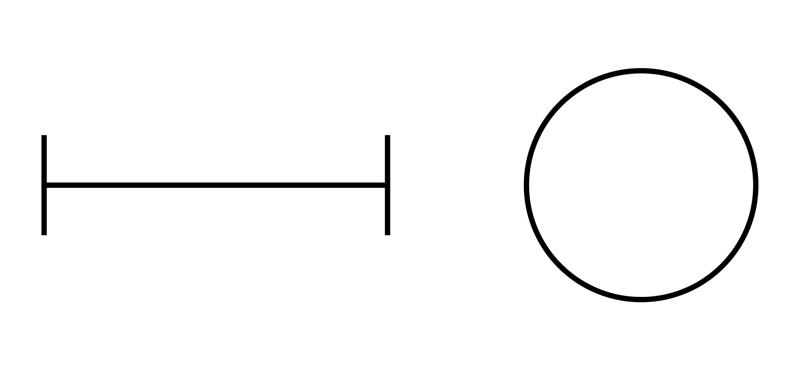linear vs. cyclic

I guess, one way to look at things is that there are two fundamental concepts at how to look at things. Either you think of things as linear or cyclic: Life, the universe and everything. What about life? Does it have a beginning and an end, are we born out of nothing and fade into nothingness again? Or is it rather a cycle of life and death, spring and autumn; are we reborn in one way or another? Same with the universe: was the Big Bang really the beginning? Or does the whole universe fold out only to collapse again, and to fold out again? And yes, ultimately it’s the same with everything: do we think of them as linear or as cyclic?
The weird thing is that within the framework of logic, you can’t explain something coming into existence out of nothing. It’s not possible as logic is the study of deriving a conclusion based solely on what is known before. It’s a strictly linear process. Something before the beginning simply doesn’t exist. In this framework of thinking, the pursuit of progress is one of the highest goals, because you need to make use of the limited time before the end.
Thinking of life and everything as of cyclic processes is extremely relaxing and liberating. You are under virtually no pressure to achieve any set goal or make any progress in a certain time period because you have infinite time. If not in this life, then in the next. Eternity is then a reality.
Both ways of living can be extremely rewarding. The pleasure of having achieved something, of having made progress, as well as the pure pleasure of experienced stimuli. I guess that’s where my previous post about happiness fits into the picture. My conclusion for now is the same as with many things: the key is to find the right balance between the two.
I feel like related concepts that go with the cyclist vs. linear concept are:
- cyclist vs. linear
- static vs. progressive
- save vs. dangerous
- holistic, communitarian vs. individualistic, liberal
- man is part of the environment vs. man controls his environment
- ‘eastern’ vs. ‘western’ philosophy